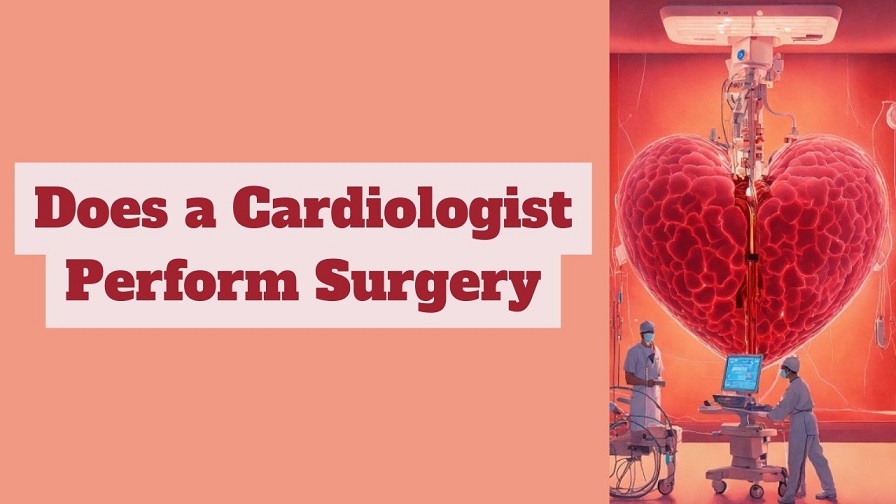Does a Cardiologist Perform Surgery?
Cardiologists are medical doctors who specialize in diagnosing and treating diseases of the heart and circulatory system. This leads to the common question – do these heart health experts perform surgery as part of their clinical duties? The answer is more complex than a simple yes or no.
There are several types of cardiologists, some of which have the training and skills to conduct specific cardiovascular procedures that could be considered surgical. However, many cardiologists solely manage medical treatment without surgical interventions.
Defining Cardiac Surgery
Open-heart surgeries like coronary artery bypass grafting (CABG), heart valve repair or replacement, and correction of complex congenital heart defects are not performed by most cardiologists. These complex procedures are instead completed by cardiothoracic surgeons or cardiovascular surgeons who have many additional years of specialized surgical training beyond cardiology.
However, there is a subspecialty field known as interventional cardiology, whereby cardiologists use tiny incisions and specially designed catheters with tools to navigate through blood vessels to treat cardiovascular disease. While minimally invasive, these catheterizations do enter sterile spaces like the heart and arteries, which previously only surgeons accessed directly.
Cardiologists who complete an additional 1-2 year advanced interventional cardiology fellowship program after their cardiology residency learn to perform these procedural interventions.
Interventional Cardiology Procedures
The following are some examples of interventional cardiology procedures combining surgical concepts and methods that cardiologists can be trained to perform:
Cardiac Catheterization with Angiography: This invasive diagnostic procedure involves inserting a long, narrow tube called a catheter into a blood vessel that leads directly to the heart. Contrast dye is injected so multiple X-ray images can visualize blockages in the arteries supplying oxygen to the heart muscle.
Coronary Angioplasty: A tiny balloon at the tip of the cardiac catheter can be inflated to widen narrow sections inside coronary arteries, improving blood flow to the heart. This is known as percutaneous coronary intervention (PCI).
Stent Implantation: Expandable wire mesh tubes called stents are positioned via cardiologist-manipulated catheters and then deployed permanently inside diseased arteries, keeping them widened after balloon angioplasty.
Pacemaker/AICD Insertion: Cardiologists insert electrical pacemaker and defibrillator devices with catheters fed through the circulatory system into the heart, then attach device wires to exact locations on the myocardium, improving abnormal rhythms.
Ablation Therapy: Specialized catheters allow cardiologists to deliver targeted energy inside the heart to scar problematic tissue, disrupting abnormal electrical signals and causing arrhythmias.
Cardiologists Focusing on Medical Management
It’s important to understand that while some cardiologists perform the interventional procedures described above, many cardiology specialists focus exclusively on managing heart disease.
These cardiologists have extensive expertise in using medications and lifestyle changes to prevent and treat cardiovascular disease. They interpret diagnostic heart tests and make treatment adjustments in the outpatient setting without performing any catheter-based or open surgical interventions themselves.
Examples of nonsurgical cardiologist activities include:
Prescribing medications like cholesterol drugs, blood thinners, ACE inhibitors for heart failure, calcium channel blockers for blood pressure, etc.
Ordering and analyzing results from ECGs, echocardiograms, stress tests, CT scans, MRI scans
Providing ongoing care for chronic diseases like coronary artery disease, arrhythmias, and heart failure
Managing acute cardiac conditions, including heart attacks, pulmonary edema, myocarditis, pericarditis
Monitoring implantable devices – pacemakers, AICDs, event recorders
Coordinating multidisciplinary care with primary doctors, nurses, rehab therapists, and surgeons
Selecting a Cardiologist
When choosing a cardiologist, it’s reasonable to ask if they perform inter-ventional surgical procedures if catheter-based interventions become necessary. Cardiothoracic surgeons would conduct open-heart operations, but cardiologists insert stents, ablate heart tissue, and implant rhythm-regulating devices.
Understanding that most cardiologists focus on outpatient medical management while some cardiologists additionally perform surgical procedures inside the heart and blood vessels using catheters can help patients select specialists aligned with their care needs more precisely. By differentiating between inter-ventional and non-interventional cardiologists, more informed decisions result.
Conclusion
In summary – some cardiologists directly participate in minimally invasive intravascular procedures treating cardiovascular disease, which involve entry into sterile spaces, including the heart.
However, many cardiologists improve heart health without surgical interventions by instead relying on comprehensive medical management coordinated with other providers when operations become necessary. Knowing these differences allows patients to align with sub-specialists whose skills best match their specific condition.
Thank you for visiting Jobs Ada






